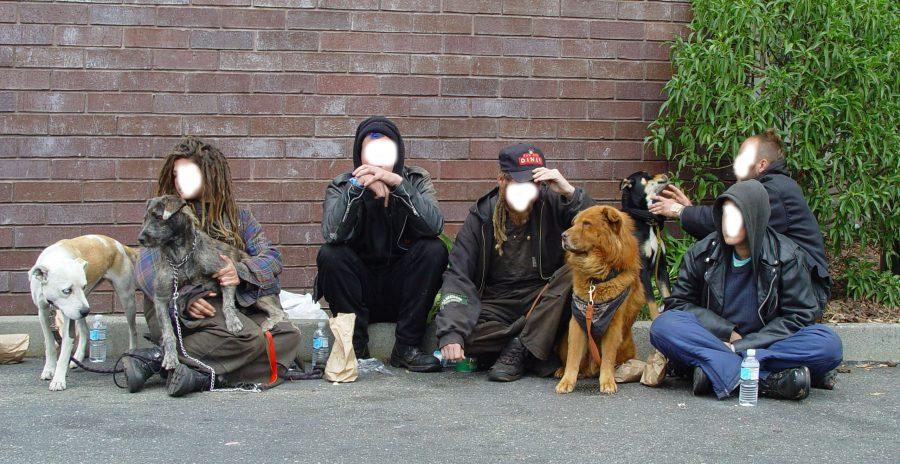When San Francisco put in their bid to host the 2016 Super Bowl, Levi’s Stadium was barely under construction. Now, five years and 1.2 billion dollars later, fans across the country anxiously wait for the biggest event on the planet, the NFL Super Bowl 50 (L).
Any franchise would be crazy to not want to host a Super Bowl. The financial advantages are virtually unparalleled. Most will say it’s a huge economic benefit to the population that lives in the host city as well. And as far as tourism goes, the “fan village” alone is supposed to attract over a million people to this year’s Bay Area Super Bowl.
Nathan Ballard, a spokesperson for the Host Committee for Super Bowl 50 referred to the event as the leading sporting event in terms of advertising and investment. Ballard believes that any Super Bowl is a huge economic boost for any city that ends up hosting the event.
“Every city that has hosted a Super Bowl has wanted to do it again. I am willing to project that San Francisco comes out in the black. City and county governments tend to make a lot of money off this because you have a huge influx of tourists from all over the world,” commented Ballard. “This is the biggest single sporting event on planet Earth, and San Francisco thrives in part because we have a bustling tourist industry. All of our hotel rooms will be filled and all of our restaurants will be packed and our city coffers will be more full than they ordinarily would in February.”
Ballard is right. The Super Bowl certainly benefits the government, business owners, and even the tourism industry. Unfortunately, there are cons to the pros.
Financially, it isn’t a reality for the majority of the US population, let alone the world’s population, to afford to travel to major events like the Super Bowl. Air fares, hotels, and food prices are jacked up to a premium; in the stadium, the prices are even steeper. Looking up the cost of water and food will blow your mind. At the suite level, people can order a crab fondue or nachos for over 100 dollars. Here’s some good advice: eat before the event.
The Super Bowl is just one of many high profile sporting events that casts a shadow over real issues that reside within a host city or host nation. Qatar and Brazil are prime examples in instances of the FIFA World Cup; both have been under scrutiny for a variety of human rights violations during the construction process of their events in 2022 and 2014, respectively. Per usual, high economic profits took priority over vulnerable populations.
Currently, the Bay Area is facing similar scrutiny for a less severe, but still immoral, obstruction of human rights. Now the big question is, where will the homeless population of San Francisco go?
Recently San Francisco’s Mayor Ed Lee told reporters that he planned on removing the homeless population off of the streets in time for the Super Bowl. According to Vice News, “Lee has promised to move some of the homeless population into 500 housing units ahead of the big game.” The problem is that many of these housing units are already holding people and are far too small to accommodate the vast homeless population.
Lee has received a tremendous amount of backlash from homeless outreach groups, but overall his decisions reception has been mixed. Some see it as a positive that he is addressing San Francisco’s perpetual issue. Ultimately though, the housing is only temporary. To put it bluntly, Lee is displacing an enormous amount of people with nowhere to go.
According to Jennifer Friedenbach, the director of the city’s Coalition on Homelessness, the most recent homeless count in San Francisco was about six thousand. According to Vice News, police are enforcing Lee’s announcement “by issuing citations or clogging up jails.” These citations have fees that are expected to be promptly paid. However, the homeless tend to not have money, just change, and failure to pay off a citation can result in jail time or even compounded tickets.
While San Francisco deals with their homelessness issues, we can only hope that some Super Bowl profits are allocated to address underlying social issues within their city. It is a shame to see the NFL appearing to have a weak moral compass yet again. Despite the systemic problem, the NFL’s big event in the Bay Area is in the media’s spotlight, while the homelessness issue barely brushes the surface of media attention.
The Clash of Homelessness and Football in San Francisco
January 29, 2016
A group of homeless sit with their dogs at Haight Street in San Francisco, circa 2006. A report compiled by the city and the Applied Survey Research at the beginning of 2015 indicated San Francisco’s homeless numbered 6,668.





















































